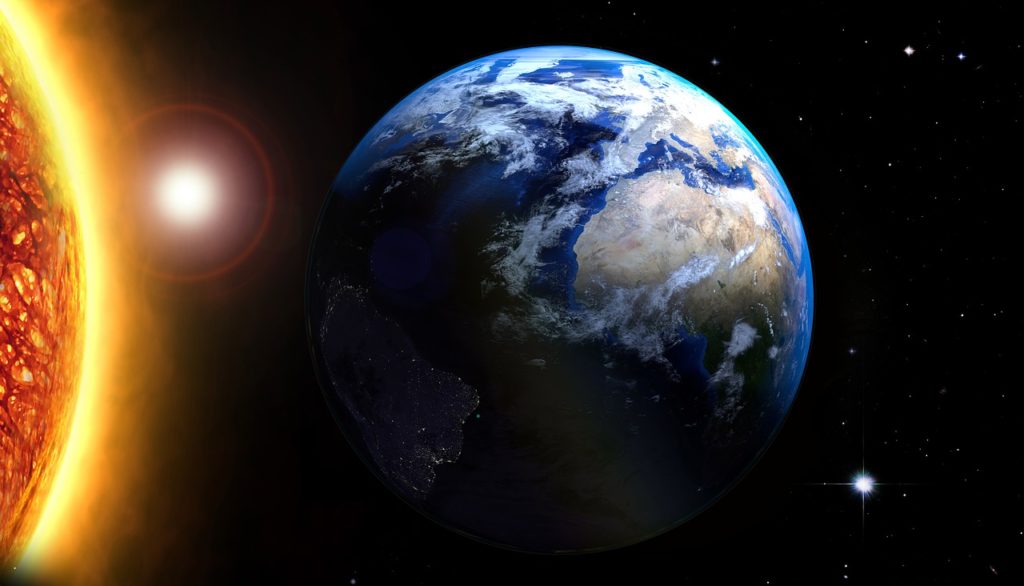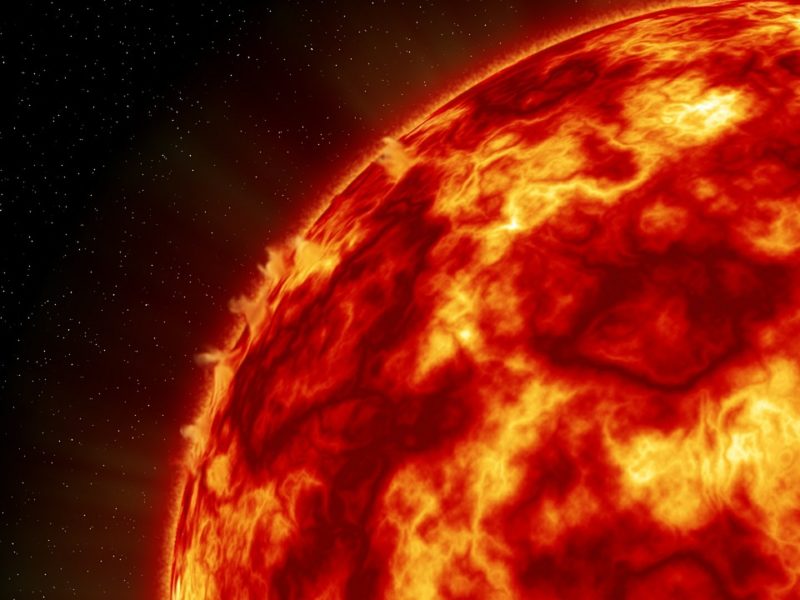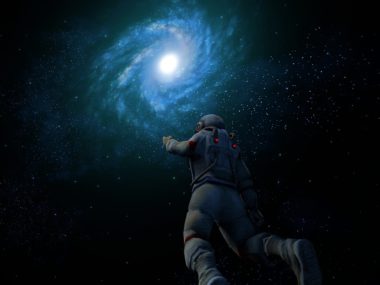The faint sun paradox is a common example of young-creationism apologetics. Essentially, scientists have been able to determine that the sun generates less heat in the distant past than it does today. This of course means that the Earth was also colder in the past. Secular scientists, for example, don’t think the Earth’s temperature rose above freezing until about 1 billion years ago. This presents an evolutionary conundrum because Earth’s fossil record suggests life evolved 3.5 billion years ago, long before the Earth warmed to temperatures suitable for abiogenesis.
The following article has been reblogged with permission from Creation Unfolding. The views expressed reflect those of the author, and not necessarily those of New Creation.
Creationists have been quick to pounce on this conflict, using it as evidence for a “young” Earth. In fact, many young-earth creationist websites will site this in one of their top ten lists for a “young” universe. Here are my problems with this example:

1. Cosmological models of stellar evolution are inherently theoretical. Scientists just don’t have the capability to do “hands-on” research with objects that are near-impossible to reach or study. This means that cosmological hypotheses are going to come and go. Pulling apart cosmological models because of limited data, therefore, is only going to be compelling for those who “want” it to be compelling. On the flipside, unbelievers are going to remain unconvinced, and perhaps even hardened when other, more compelling data is presented to them.
2. The faint sun paradox does nothing to support the notion of a “young” Earth. This example is only used by young-earth creationists because it constrains a 4.6 billion-year age for the Earth.
3. Perhaps my biggest concern is with the use of the word, “young.” Most young-earth creationist websites that host this example do not define what they mean by this word. Consider this comment from a recent post on one of my links, “the amount of energy the sun generates, likewise suggests a young star.” What does this person mean by “young”? More importantly, what might the person on the other end of this post think? If the other person is an unbeliever, he will most likely think that the faint sun paradox supposedly proves that the Earth is only 6000 years old. What will he think of young-earth creationists, and Christians in general, when he finds out that this example only limits Earth’s age to a billion years? Even some well-known and well-established creationist websites use the word “young” without defining what they mean.
In conclusion, if we as young-earth creationists, and Christians, are going to succeed in winning people to Christ (remember, this is the goal), we need to be transparent, honest, and humble with how we handle data. The faint young sun paradox is NOT evidence of a “young” universe. It can be used to show that evolutionary time frames have problems, but let’s be careful using this, and other similar examples in top 10 lists in favor of young-earth creationism.












There is no intelligent evidence the sub is less hot then before. Its just a wastre of time listening to so called scientists guessing about these things. they know nothing of the past. No credibility
As much as I appreciate your calls fir honesty, I have little hope. Creationists are consistently among the least honest of any group of people I’ve ever encountered.
Your opinions on what is honest & dishonest, is bound by your hopes that your world view can be demonstrated in science. As it cannot be demonstrated through evidence, you don’t get to call anyone a liar. Christians have good reasons to refute the science that contradicts what is said in Gods word. You’re taking text books as being gospel- and then you’ve decided your view is honest. How do you know it is? Since there’s no actual evidence of it? From start to finish- not one topic you can discuss in our existence, can be proven in science. So why lie to yourself?
Jake
The first paragraph doesn’t make sense. If ‘the sun generates less heat today than it did in the distant past’, then the Earth was warmer in the past, not cooler.
is the first paragraph a misprint?
Mr. Paul the first paragraph yes “less heat in the past” 😉. I had to go back a couple times to make sure that was what it said👍